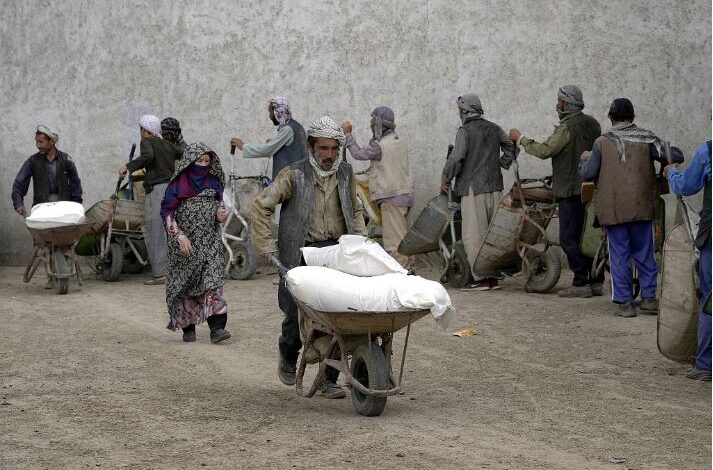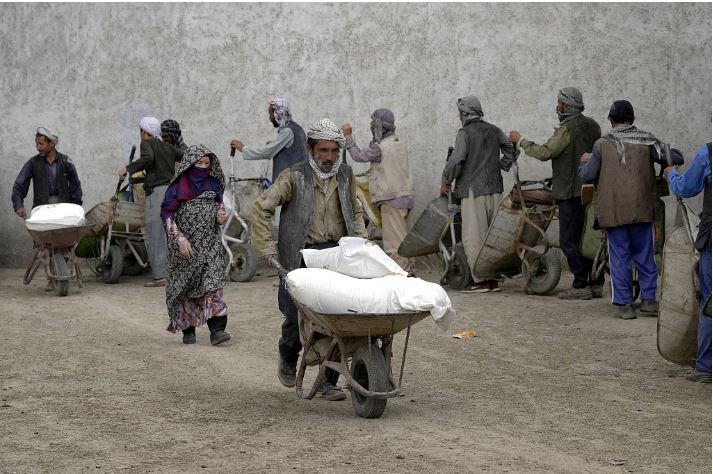War in Afghanistan: A Legacy of Failure
War in Afghanistan: A Legacy of Failure

U.S. war in Afghanistan: A legacy of failure
Freddie Reidy
Editor’s note: This is the seventh piece of the series “One Year: Taliban in, U.S. out.” Freddie Reidy is a freelance writer based in London. He studied history and history of art at the University of Kent, Canterbury, specializing in Russian history and international politics. The article reflects the author’s opinions, and not necessarily the views of CGTN.

Amid the tumults that the globe has encountered over the last twelve months, it may be difficult to believe that it has been one year since the chaotic withdrawal of coalition troops from Afghanistan.
Despite the stated intentions of Presidents Barack Obama, Donald Trump and Joe Biden, the announcement of the withdrawal of U.S. troops from the Middle East country in 2021 was met with abject shock. The nature and pace of the U.S. pullback also made it impossible for coalition partners to remain independent without backing from Washington.
Having entered Afghanistan in 2001 in the aftermath of the September 11 terrorist attacks in pursuit of the Al-Qaeda terrorist perpetrators believed to be harbored by the then Taliban leadership, it is of some cruel irony that history was due to repeat itself.
Earlier this month, Washington conducted an airstrike killing a key planner of the September 11 Ayman al-Zawhari, believed to have held a position of seniority within Al Qaeda.
Despite a trillion U.S. dollars spent, the U.S.-backed government of Ashraf Ghani survived but a few weeks before the Taliban marched back into power. Beyond this is a further reality that a senior Al Qaeda operative could reside within the capital in spite of two decades of coalition presence.
From a U.S. perspective, part of the tragedy resides within the knowledge that those on the inside were aware of the likelihood of a return to Taliban rule. Speaking to Fox News Sunday, former Commander of U.S. Central Command Kenneth F. McKenzine said that his position was “I advised against withdrawing, my recommendation and my opinion, and it remains so today, was we had the opportunity to remain in the country with a small force.”
For the U.S., ignoring such warnings produced predictable consequences, the unrecognized future challenge though is what this means for U.S.-led coalitions. In addition to the 7,000 coalition deaths in post-9/11 warzones such as Iraq, Afghanistan and Pakistan is also the team of Afghans who supported coalition forces but were left behind, now living at the mercy of the Taliban.
A radical change in government often brings unique challenges, but the restoration of the Taliban has also coincided with a dramatic global economic downturn exacerbated by Western sanctions on the country.
Twenty million Afghans, equivalent to half the population, are now living with “acute food insecurity,” according to the Financial Times. Given the country’s reliance on imported food, the credit squeeze is also being keenly felt.
However, Western governments have arguably painted themselves into a corner. There is a misguided belief that if the U.S. refuses to release seized financial assets or ease sanctions, then the Taliban will not be recognized as the official government and could become internally vulnerable.
The consequence of such a policy though is likely to be a state which falls further into poverty, which in turn fuels the very extremism and terrorist elements, and which afflicted the region notably with the rise of ISIL.
Nevertheless, there are some small glimmers of hope. In an attempt to stabilize the Afghan economy and support vulnerable groups within Afghanistan, the World Bank in July contributed $150 million to rural families in the country.
The Taliban leadership is also trying to clamp down on corruption, which starves the nation’s economy of vital funding. A UK Foreign Office-funded study quoted by the Financial Times recently found that the Taliban had “drastically reduced” up to $1.4 billion in bribes on cross-border trade alone.
Despite this, whichever metric one uses, it is hard to see the outcome of the war in Afghanistan as anything other than an abject failure.
A failure which costed over a trillion dollars, a failure which has seriously eroded the credibility of Western foreign policy, and most importantly a failure which appears to have condemned Afghanistan and its people to a miserable situation.
(If you want to contribute and have specific expertise, please contact us at opinions@cgtn.com. Follow @thouse_opinions on Twitter to discover the latest commentaries in the CGTN Opinion Section.)





